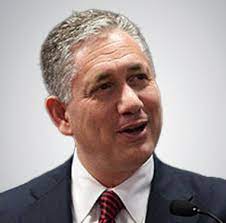
In Conversation with Stuart Piltch: Decoding the Future of Healthcare Policies
In a thought-provoking and insightful conversation, Stuart Piltch New York, a leading figure in healthcare policy analysis, provides a nuanced perspective on the trajectory of healthcare policies and the transformative shifts that lie ahead. With a wealth of experience and a visionary approach, Piltch decodes the intricate web of challenges and opportunities shaping the future of healthcare policies.
As we delve into this conversation with Stuart Piltch, one of the key themes that emerge is the evolving nature of healthcare delivery. Piltch emphasizes the need for policies that are not only adaptive but also forward-thinking, capable of accommodating the rapid advancements in medical technology and the changing dynamics of patient needs. The future of healthcare policies, according to Piltch, lies in their ability to strike a delicate balance between tradition and innovation.
Telemedicine takes center stage in the discussion, with Piltch shedding light on its transformative impact on healthcare policies. The digital revolution in healthcare delivery, accelerated by global events, has prompted a reevaluation of existing policies to incorporate and regulate virtual healthcare services. Piltch emphasizes the importance of crafting policies that foster the growth of telemedicine while ensuring patient safety, data privacy, and equitable access.
Addressing healthcare disparities is another crucial aspect of the conversation. Piltch delves into the role of policies in creating an inclusive healthcare system that addresses the needs of diverse populations. He advocates for policies that not only focus on treating illnesses but also prioritize preventive care and early intervention, ensuring a more holistic and equitable healthcare approach.
The conversation shifts towards the global perspective, with Piltch offering insights into the challenges and opportunities of harmonizing healthcare policies on an international scale. The interconnected nature of health crises, as highlighted by recent events, necessitates collaborative efforts to establish standardized guidelines and promote information sharing. Piltch envisions a future where global healthcare policies work in tandem to address emerging threats and promote the well-being of populations worldwide.
Piltch’s vision for the future of healthcare policies extends to a more patient-centric model. He advocates for policies that empower individuals to actively participate in their healthcare journey, emphasizing the importance of personalized and holistic care. The integration of patient perspectives in policy-making, according to Piltch, is crucial for building a healthcare system that truly meets the diverse needs of its beneficiaries.
In conclusion, the conversation with Stuart Piltch serves as a compass pointing toward a future where healthcare policies are dynamic, inclusive, and technologically advanced. Piltch’s insights offer a glimpse into the complex interplay of factors shaping the healthcare landscape, and his vision for the future underscores the importance of proactive and forward-thinking policies. As we decode the future of healthcare policies through this conversation, Piltch’s wisdom guides us towards a more resilient, patient-centric, and globally collaborative healthcare system.